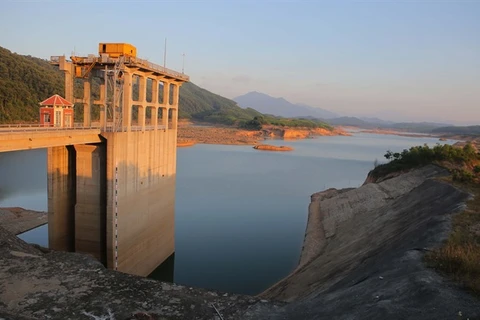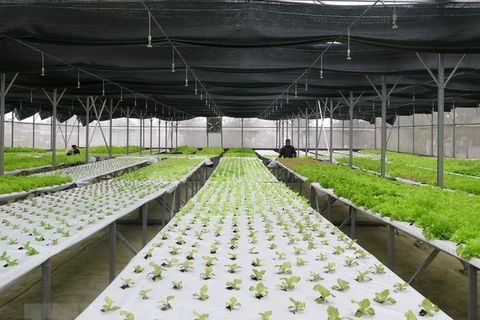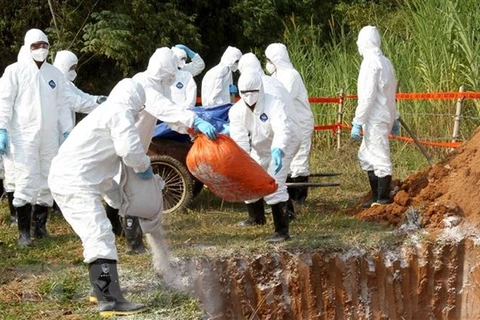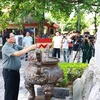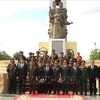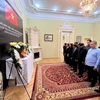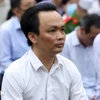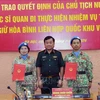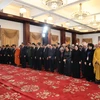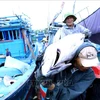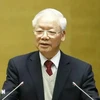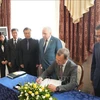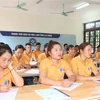Hanoi (VNA) – Ensuring food security is an urgent issue at present with food supply sources and access to safe food supplies being seriously affected, especially by climate change, Deputy Minister of Agriculture and Rural Development Le Quoc Doanh said at a forum in Hanoi on November 5.
He pointed out the challenges that Vietnam is facing in the field such as fierce competition from major exporters of farm produce, unstable export markets, and the poor performance of small-scale producers.
Furthermore, outbreaks of diseases, particularly African swine fever, as well as extreme weather patterns and natural disasters, are putting much pressure on food security in Vietnam, he said.
Aware of the importance of ensuring food security, the Party and Government have promulgated a number of policies to develop agriculture combined with improving the quality of food security and increasing incomes for farmers, according to Deputy Minister Le Quoc Doanh.
The Ministry of Agriculture and Rural Development has built a project on national food security through 2020 and implemented the Government’s resolution on policies for agricultural production planning, infrastructure development, increasing the application of science-technology, and human resources training.
Tran Cong Thang, head of the Institute of Policy and Strategy for Agriculture and Rural Development, said Vietnam is now the third biggest rice exporter in the world, after India and Thailand.
He reported that the country has ensured self-sufficiency in food with average food output per capita at a high level (ranking sixth in the world). Hunger has been basically eradicated, and people’s access to food and balanced nutrition has improved remarkably.
The agricultural sector is contributing 15 percent to the country’s gross domestic product (GDP) and employing 38 percent of the nation’s labour force, he added.
The scholar pointed out shortcomings to national food security, such as the high rate of malnourished children and obesity, restricted access to diverse food in poor and mountainous regions, and unhealthy diets that lead to cardiovascular diseases, diabetes and cancer.
He recommended changing the approach to food security, shifting the focus on ensuring nutrition balance and food safety. He also stressed the need for support to people to diverse their sources of income, thus improving their ability to pay for food.
According to the scholar, based on consumption forecast, part of the rice cultivation land could be switched to other purposes. He suggested maintaining between 3.3-3.5 million ha of land for rice farming and around 35 million tonnes of paddy as the core of national food security./.
VNA

